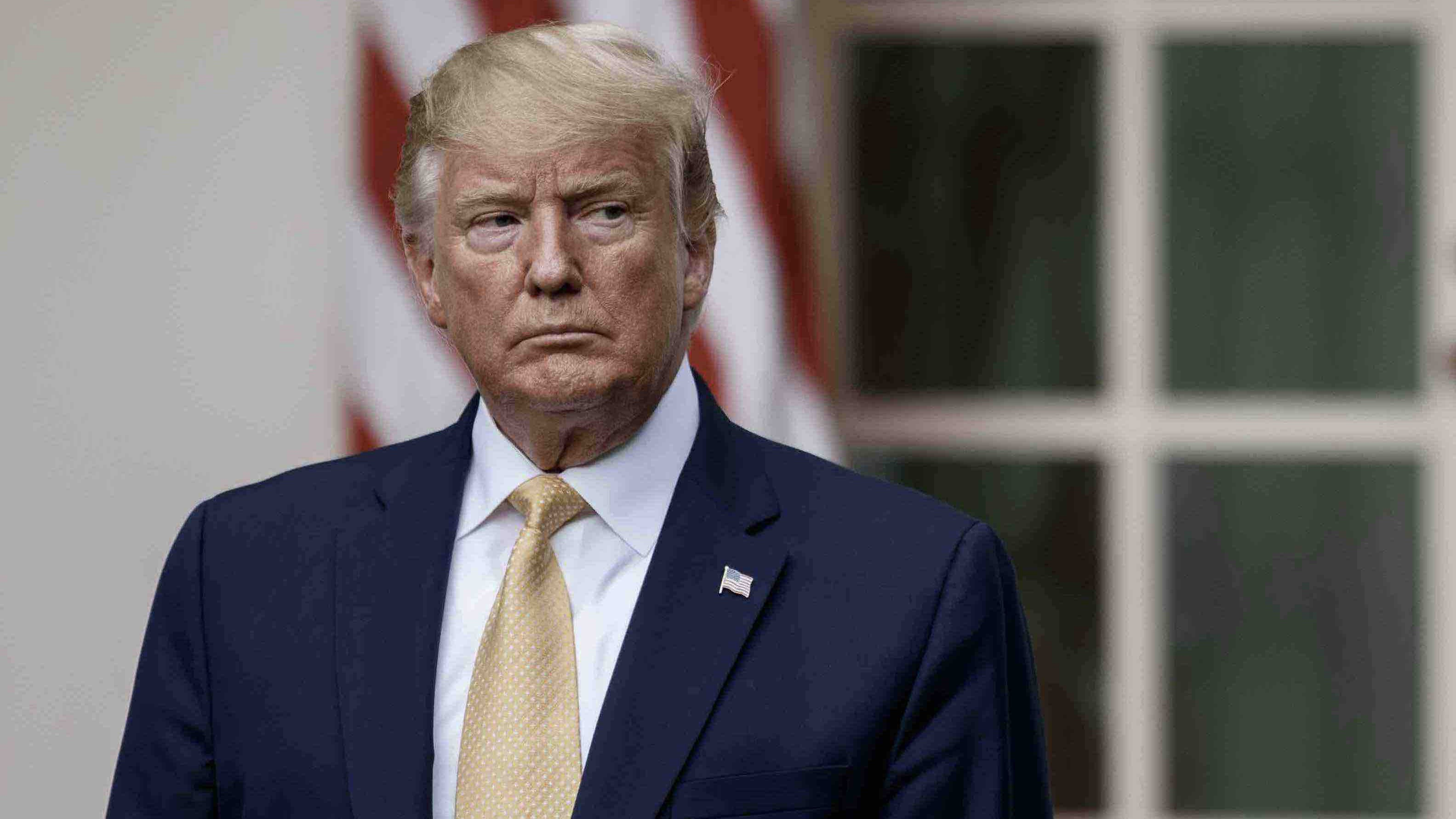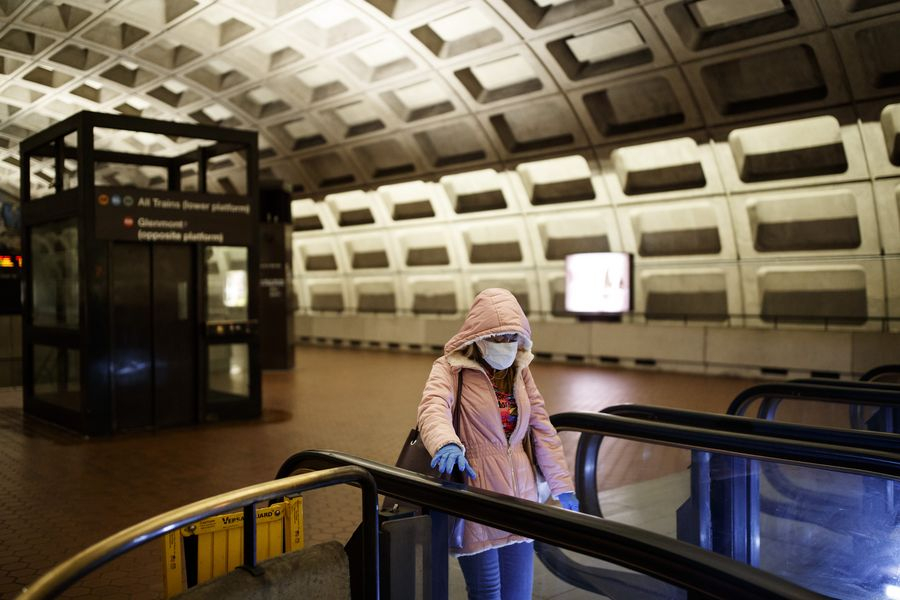
U.S. president Donald Trump /Xinhua
U.S. president Donald Trump /Xinhua
Editor's note: Stephen Ndegwa is a Nairobi-based communication consultant, and international affairs columnist. The article reflects the author's views, and not necessarily those of CGTN.
It was an unprecedented admission. After much indecision on the current challenges posed by the global COVID-19 pandemic, President Donald Trump finally threw in the towel, with shocking revelations that the U.S. is headed for a two-week nightmare as the country projects a loss of 100,000 to 240,000 citizens from COVID-19.
In a White House statement on April 1, Trump backtracked on his optimism, saying that America could record up to 240,000 fatalities from the pandemic, surpassing any anticipated mitigation threshold.
Short of recommending for total lockdowns across the States as an effective way of halting community transmission of the virus, Trump asked Americans to continue with current measures including social distancing and school closures.
According to the journal Science, China's decision to lock down the city of Wuhan may have prevented more than 700,000 COVID-19 cases by containing the spread of the coronavirus disease.
Anyway, the horse seems to have bolted out of the cart already in several cases. Next to the deep health and economic ramifications as a result of COVID-19, the pandemic is potentially distorting America's electoral and political calendar.
The Democrats announced on April 2 that they had decided to delay the party's nominating convention in Milwaukee by a month to August 17, which comes close to the Republican's convention in Charlotte that starts on August 24.
In both cases, the parties are gearing up for "full seated" conventions. Trump has been unequivocal that his party will not budge. This obviously presupposes that the current COVID-19 restrictions will have been lifted significantly earlier so as to allow for both travel and close mass interactions.
But it will not be surprising if, like he has been forced to tone down his rhetoric on the danger posed by COVID-19, Trump changes his position. The pandemic actually poses an acid test for his electoral prospects in the forthcoming November elections.
One critical area that might adversely affect Trump's scorecard is the current free fall of the country's economy, including increasing stock market uncertainties. In its annual report to Congress in February, the White House highlighted a high Gross Domestic Product growth that had outpaced expectations, and a jobless rate that had hit historic lows.
But things have changed drastically, suddenly. On April 2, it was reported that an all-time record 6.65 million Americans applied for unemployed benefits in the last one week, with the past two weeks erasing nearly all the jobs created in the last five years.
Before COVID-19's emergence in the U.S., it was widely agreed that incumbent Trump was the man to beat in the elections, as unemployment hit record lows on a corresponding high in economic growth.
The now jobless millions could easily have been Trump's votes to lose, as they would easily have voted for the status quo. Getting back to these numbers post COVID-19 will be a herculean task, as economic giants like China, whose industries are reportedly resuming near total capacity, fill in the vacuum in international trade.

A resident wearing mask is seen in a metro station in Washington, D.C., the United States, March 31, 2020. /Xinhua
A resident wearing mask is seen in a metro station in Washington, D.C., the United States, March 31, 2020. /Xinhua
Equally reduced will be Trump's bargaining power on the longstanding trade spat with China, which observers saw as the final master stroke of his electoral campaign.
On January 15, 2020 Trump signed the first trade deal with China. The pact aimed at opening Chinese markets to exports of more American companies, including providing greater protection for American technology and trade secrets. China had committed to purchasing an extra 200 billion U.S. dollars of American goods and services by next year, easing some of the tariffs it had placed on American products.
The ongoing economic downturn has hit Trump where it matters most. With slightly over 50 percent rating on his performance, the poor economic prospects have given the anti-Trump campaign much fodder with which to portray the current predicament as a result of bad leadership.
In an editorial headlined "A president unfit for a pandemic" on March 30, The Boston Globe was categorical that, "Catastrophic decisions in the White House have doomed the world's richest country to a season of untold suffering".
According to the editorial, much of the potential impact the virus will have on Americans was preventable, saying the unfolding scary scenario was as a result of "a colossal failure of leadership".
Heads of multi-lateral organizations like the United Nations, the World Bank, and the International Monetary Fund had warned of the emerging dire times, cautioning that the effects of COVID-19 might inflict irreparable damage on the world.
As a world leader by virtue of his position as U.S. President, it was implied that Trump should have taken a similar position at the same time these sentiments were being expressed. But now it seems Trump's action might be too little, too late.
Ultimately, whether COVID-19 will be Trump's political Waterloo remains to be seen. But experts observe that his performance at the ballot will largely depend a lot on his scorecard in the way he has handled a pandemic that has threatened the foundation of the American nation.
(If you want to contribute and have specific expertise, please contact us at opinions@cgtn.com)